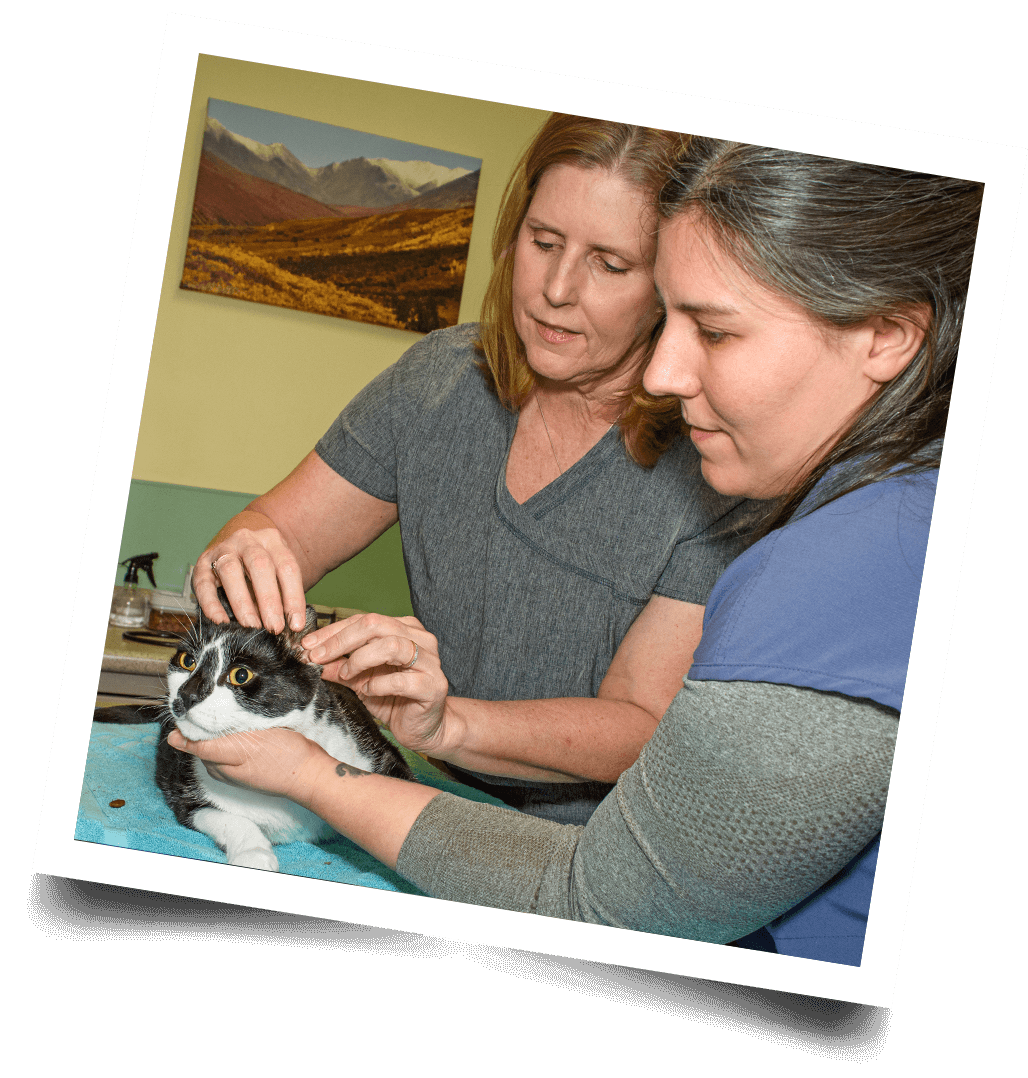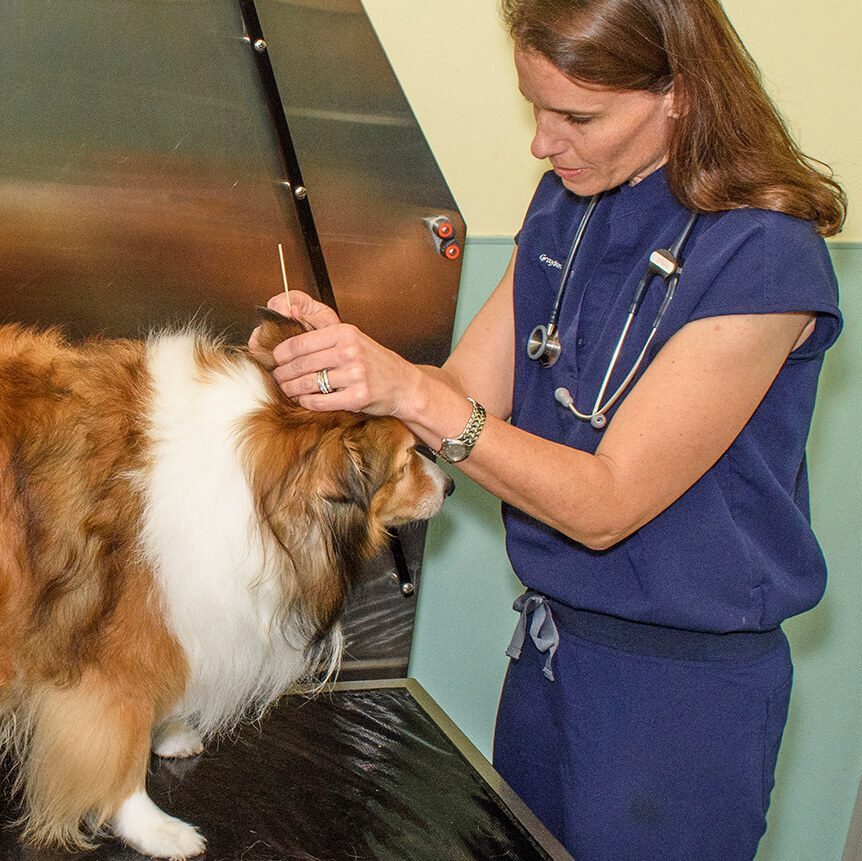Managing Cat and Dog Allergies and Skin Disorders in Charleston, SC

Itchy skin is a common problem for pets. We see many cases of seasonal allergies in dogs and cats here in Charleston, along with various skin disorders and secondary infections. Our team can provide pet dermatology services that cover a wide range of skin conditions and allergies, with the goal of managing the problem at the source and relieving your pet’s itching as much as possible. While cat and dog allergies cannot be permanently cured, they can be kept well under control with a tailored treatment plan.
Is your dog or cat suffering from itchy skin? Call us at (843) 571-7095 so we can help.
How to Tell If Your Pet Has a Skin Disorder
If your pet is scratching themselves daily, that’s a good sign of itchy skin. But there are other signs of skin disorders in dogs and cats to look for as well, including:
- Raw, red areas on the skin
- Patches of skin that appear dry and scaly
- Clusters of small bumps on the skin
- Red, swollen ears
- Odor coming from the ears/skin
- Bald patches under the arms/legs, around the eyes, and/or between the toes
What We Can Do to Treat Cat/Dog Allergies and Skin Disorders
Allergies and skin disorders in dogs and cats can be tricky to resolve, especially if they have persisted for some time. Getting to the heart of the problem and finding the cause of your pet’s discomfort is the first step in their treatment. With time and patience, we can relieve their itching and formulate a management plan for their underlying condition.
Generally, the process involves:
- Conducting a thorough examination of your pet
- Asking about any changes in their environment, nutrition, and parasite prevention
- Running lab work as needed to check for underlying health issues
- Performing a skin cytology in-house to identify the nature and the cause of your pet’s skin condition (as needed)
- Exploring treatment options that best align with your pet’s condition, medical history, and lifestyle
- Amending your pet’s treatment plan as needed to improve their quality of life

